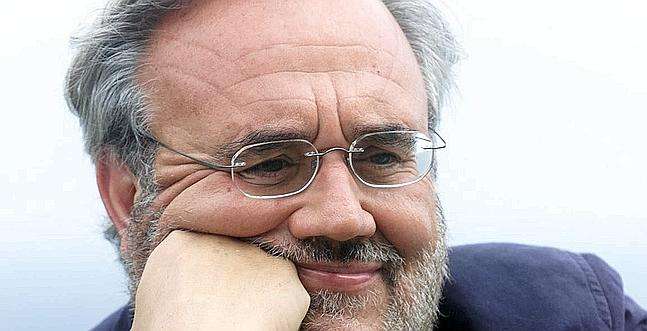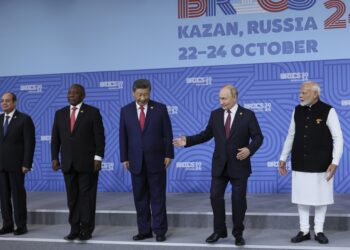Renowned and winner of several awards Spanish filmmaker Manuel Gutiérrez Aragón is in Havana as unpublished script jury at the 36th International Festival of New Latin American Cinema.
He has lost count of how many times he has traveled to Cuba since he first came in 1977. He has always been closely linked to our cinema. He directed the film Cosas que dejé en La Habana (1997) and A Rose from France (2005). He produced the series on Cuban music Música para vivir with several Cuban filmmakers like Pavel Girud and Arturo Sotto, among other documentaries on our Island.
He says he arrived in the cinema “by accident”: “I went to Madrid to study journalism, but there were no available space and enrolled in film school. I found out later that making movies is a toxic, addictive and I could make money faster than a journalist. Although, what I wanted was to write. I started doing scripts, without considering them a literary piece.¨ he told OnCuba. He is a member of the Real Academia de Bellas Artes de San Fernando and National Film Award in Spain.
In your opinion, what should a good script have to take home a Coral?
It is difficult to read scripts because it is very complex to find the point of view from which they are written. It usually takes a long time for the reader, to find where to read and decipher what tone they have and what the writer wanted to convey. When you’ve already got a few pages it begins to make sense of the characters and tone. A good script is distinguished mainly because it is interesting from the start. When you accomplish that the reader, which is not a simple reader of novels, but a director, producer or distributor, gets involved from the front pages, you already have much in advance. And then you must close well on top, have a great ending.
How do you rate this Festival in its role as disseminator of Latin American cinema in the world?
It is a festival of reference in the whole world, not only in this continent. It has been running for many years, which is difficult to achieve. It is one of the oldest festivals in the world, which has survived many vicissitudes, which is already a point in its favor. It is the most prestigious film event in Latin America and everyone wants to be here. Merely to follow and remain a benchmark event I think is more than enough to admire. On the other hand, the public sees movies that later they cannot anywhere else and for us filmmakers is the time to catch up on what’s happening.
You have been heavily linked with Cuba, how have your film projects emerged?
Like many people in Spain, my family on both sides, maternal and paternal, has huge ties to Cuba because my father was Cuban. When I first came to Cuba felt I was coming back to my grandmother´s house because it smelled exactly the same, people talked like her. This relationship does not exist between any other European country and other Latin American one. I came to Cuba by family ties and then it mainly inspired me with its issues.
Your films are characterized by a large plastic and narrative sense, how do you prefer to be remembered?
We the authors are very bad at defining our works. I think on one hand my work has a lot of testimony, registration of an era, and secondly experimental because I work free theme, almost fantastic, such as one in which the protagonist is a talking bear. My work is between the witness and the fantastic, it’s like saying I am everywhere and nowhere.
With Todos estamos invitados (2008), your most recent film, you announced your retirement from film, however you returned with the documentary Coloquio en la Residencia (2010) What are you working now in?
I retired from feature films to make shorter works. When you retire from cinema you can return at any time you deem, you do not take a definitive oath on the Bible. I can come back with another project that appeals to me at any time. My life in the cinema has been long and logically I always be a film director, but now I spend more to write novels and deliver courses and workshops on cinema, those things I could not do before because I had no time.
What advice would you bequeath to future generations of filmmakers?
That they should always refer to reality itself and not to other films that have already been made. The contemporary filmmakers have a tendency to refer to films that they have seen. One of the things we learned in my generation was to refer to the world and people around us and not what others have done previously.
What do you think of contemporary Cuban cinema?
It is in the same state than world cinema. Right now, instead of emblematic works as before, the works are very multiple now. They have many formats, are made for DVD and hang on internet. I think the Cuban filmmakers are no strangers to these phenomena despite having American and European trends. I notice a variety, whereas before there was a much more committed theme.
And of the Spanish films made today?
It happens to it a bit the same. New generations shoot more easily due to the democratization of technology. Movies are not as complex as we did, but most of them are very good filmmakers and connect very well with the public.
What do you most want to convey as a filmmaker?
One begins to tell a story in a way and ends another, the work finish transforming you. I always said that you cannot make films just for the sake of it, you must have a why do it, when you find that why, why I do this film and not another, it is when shooting is only valid. When you find the answer, you should not let it go. No reason is not worth it because cinema is not filming just because










